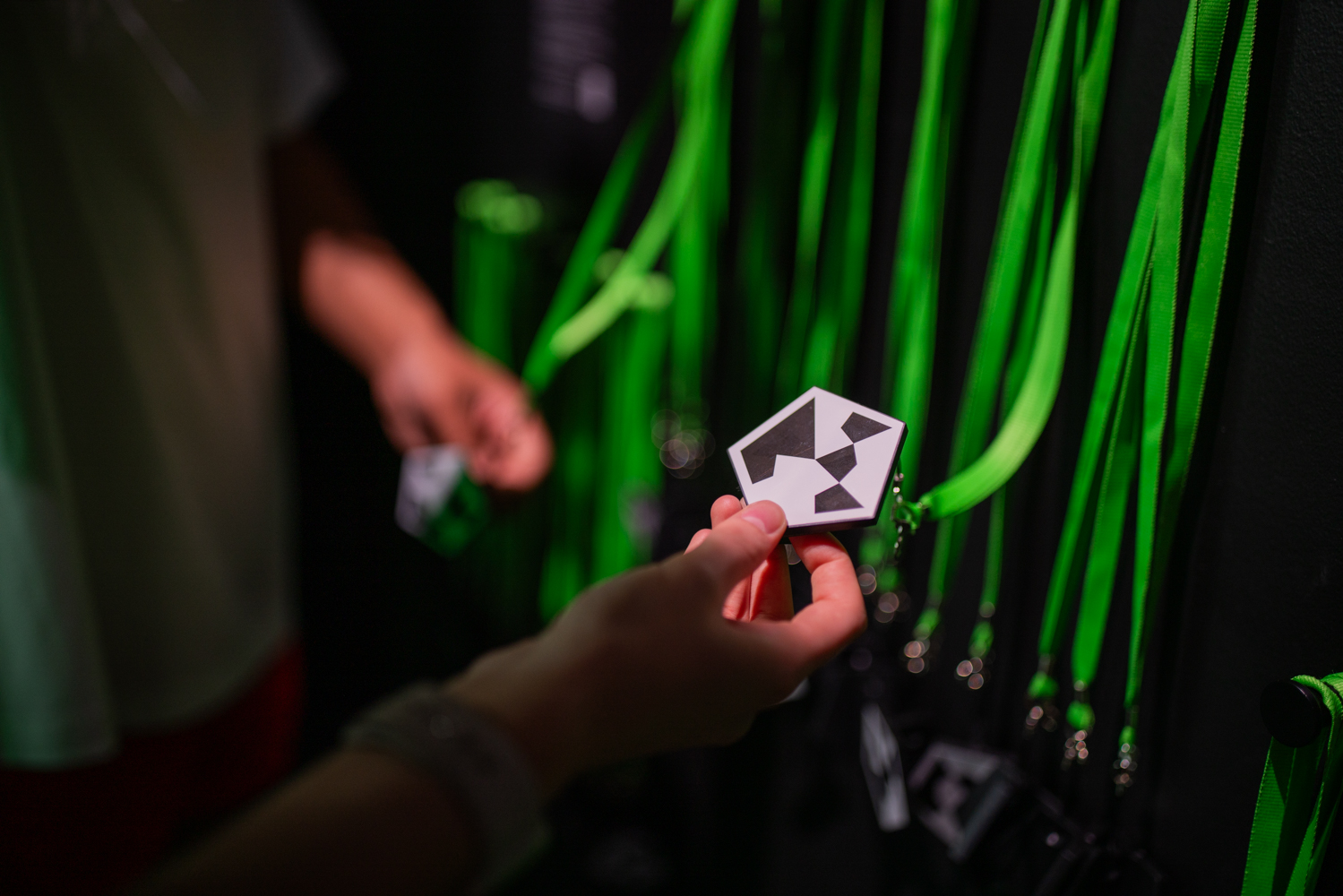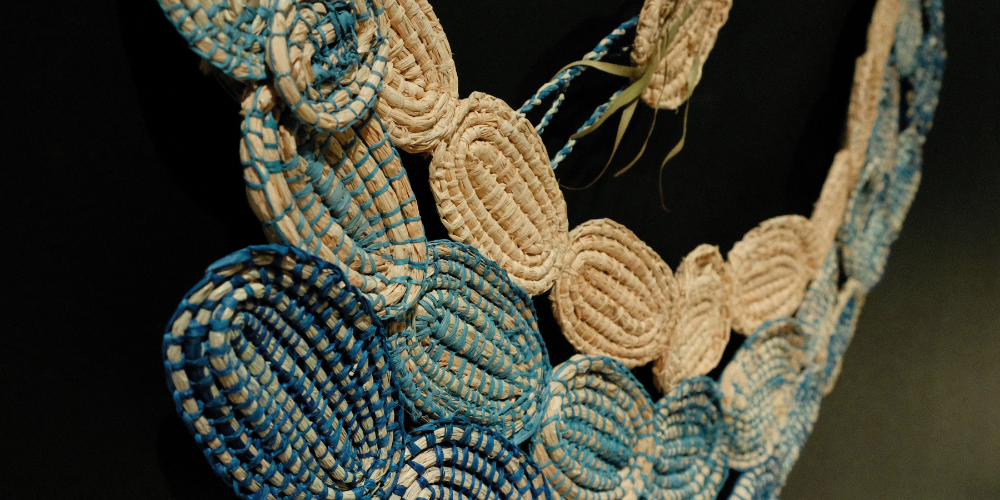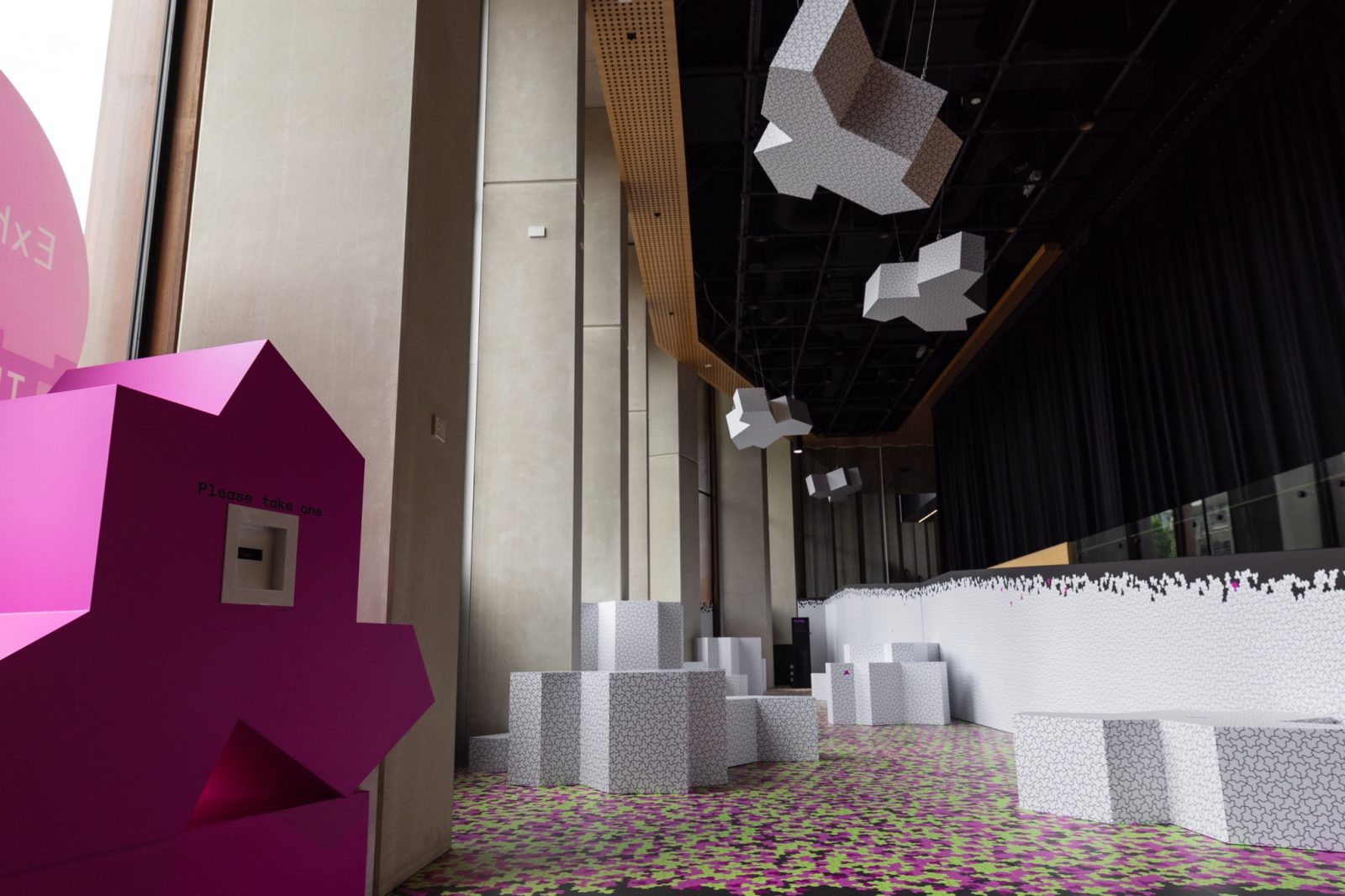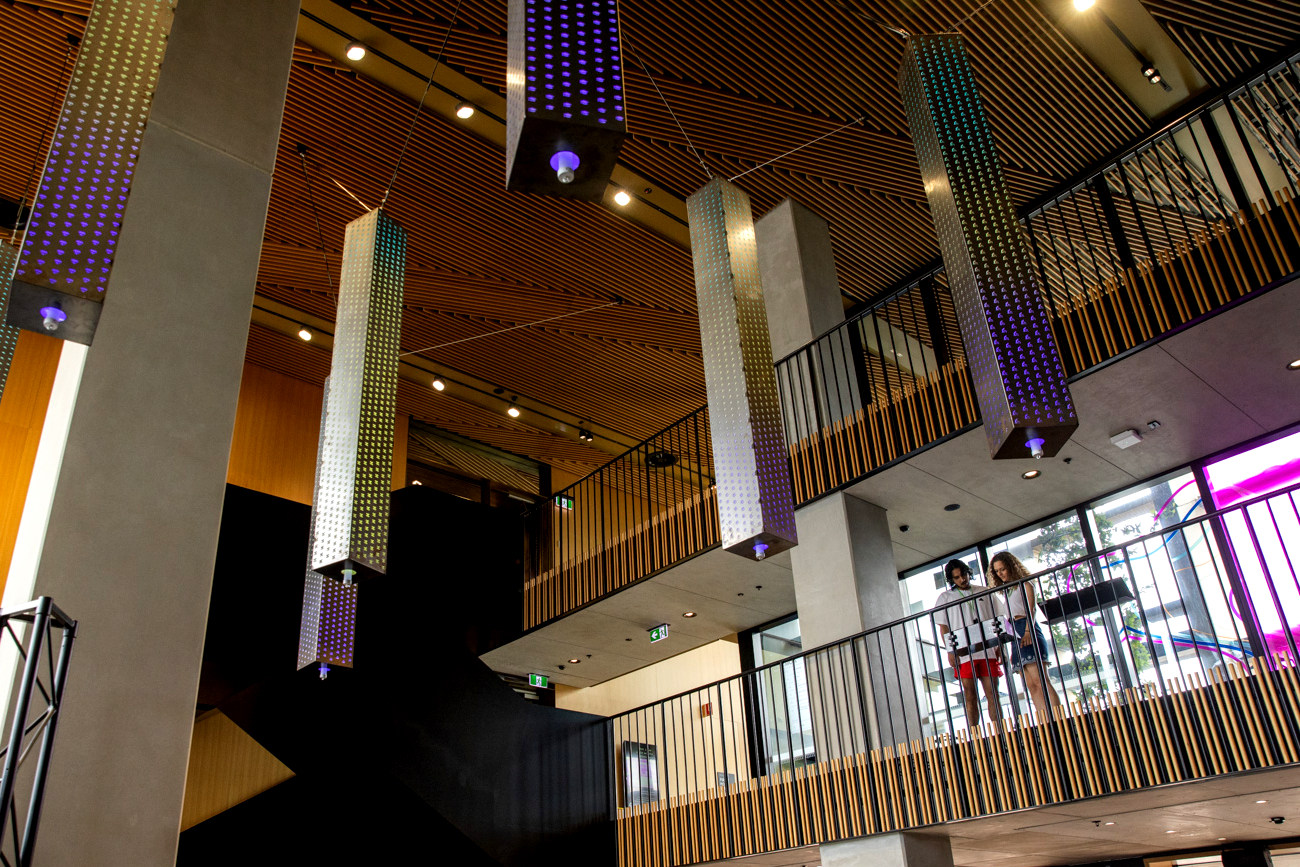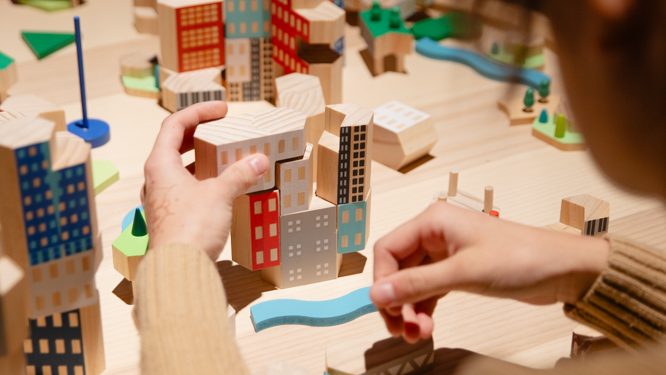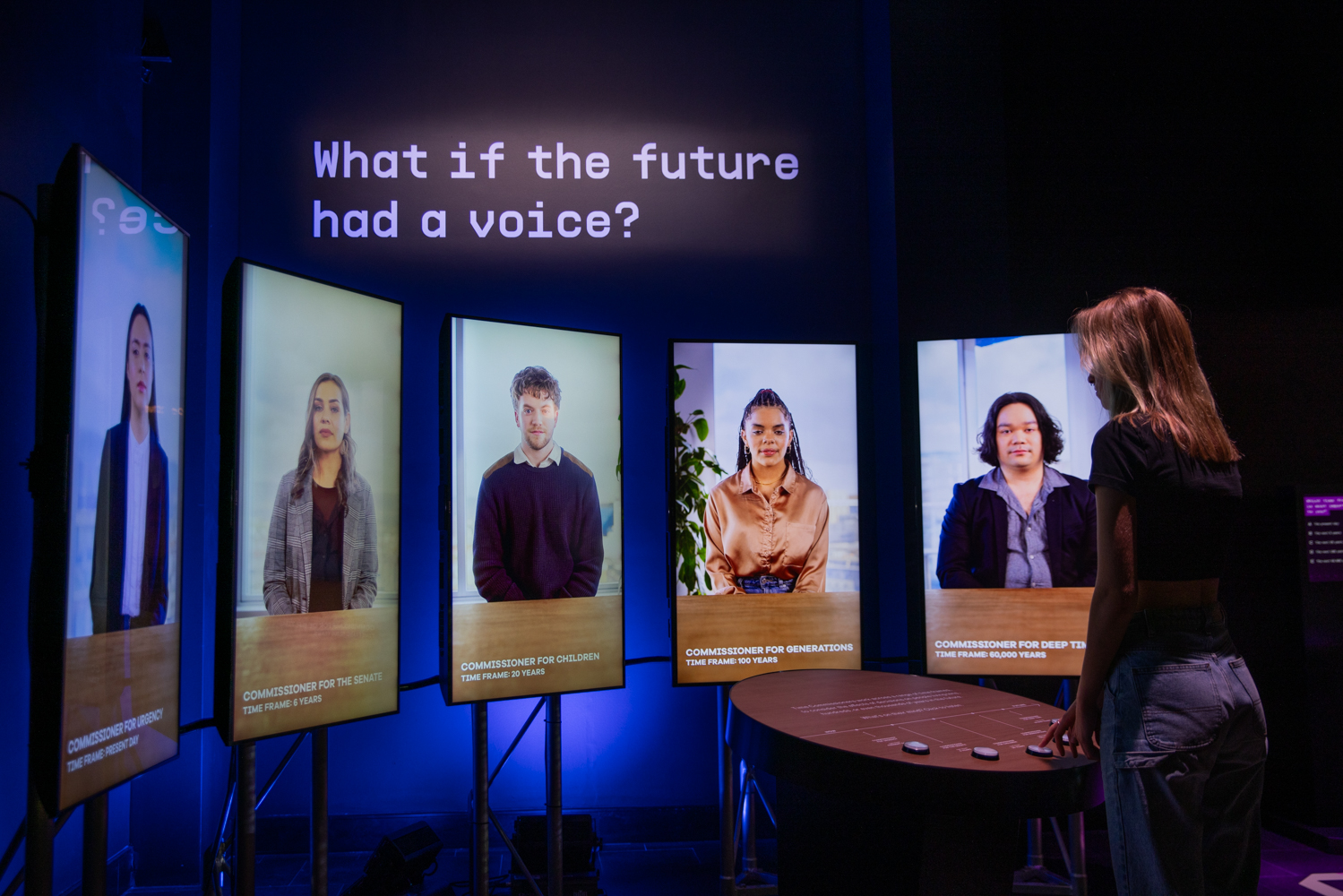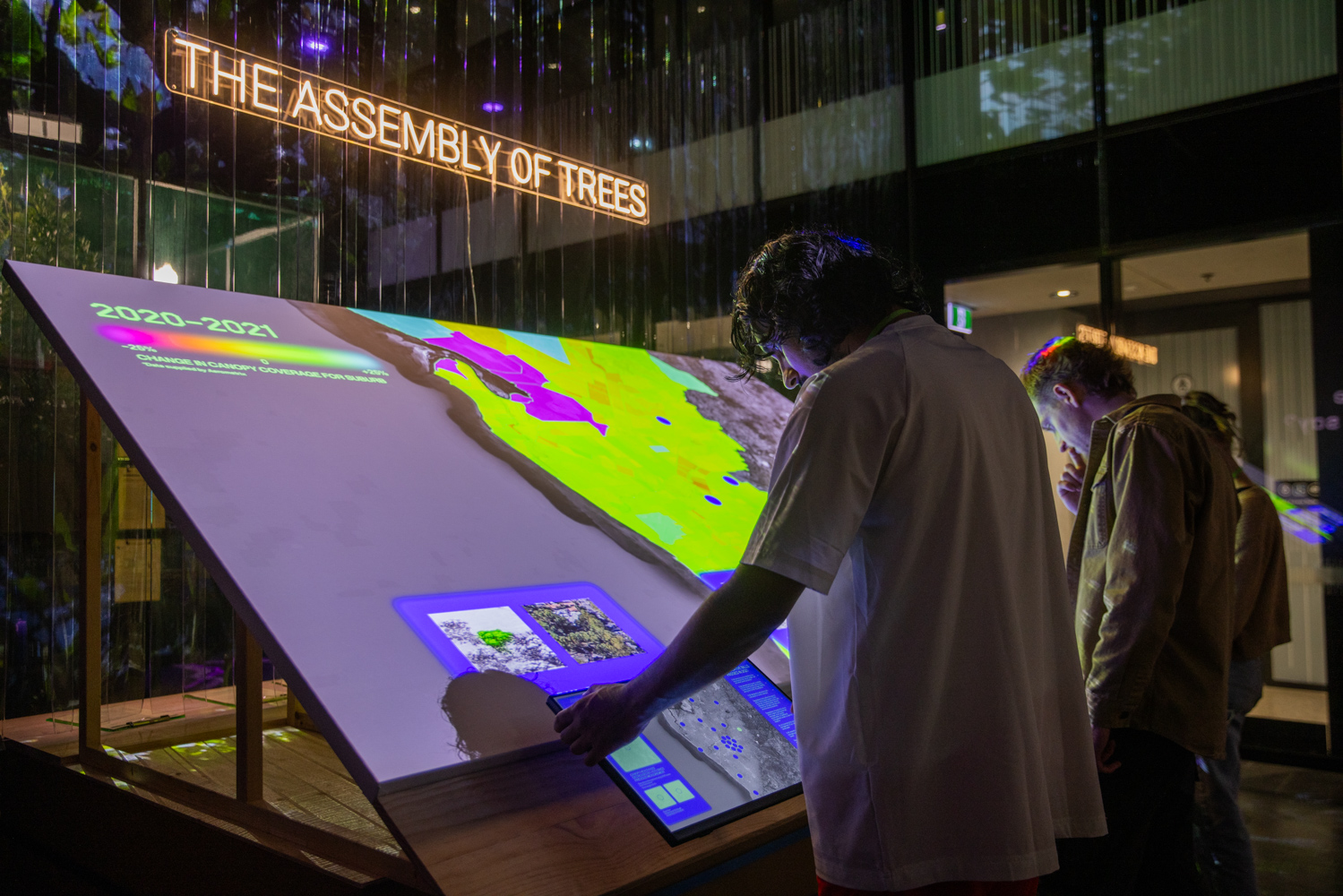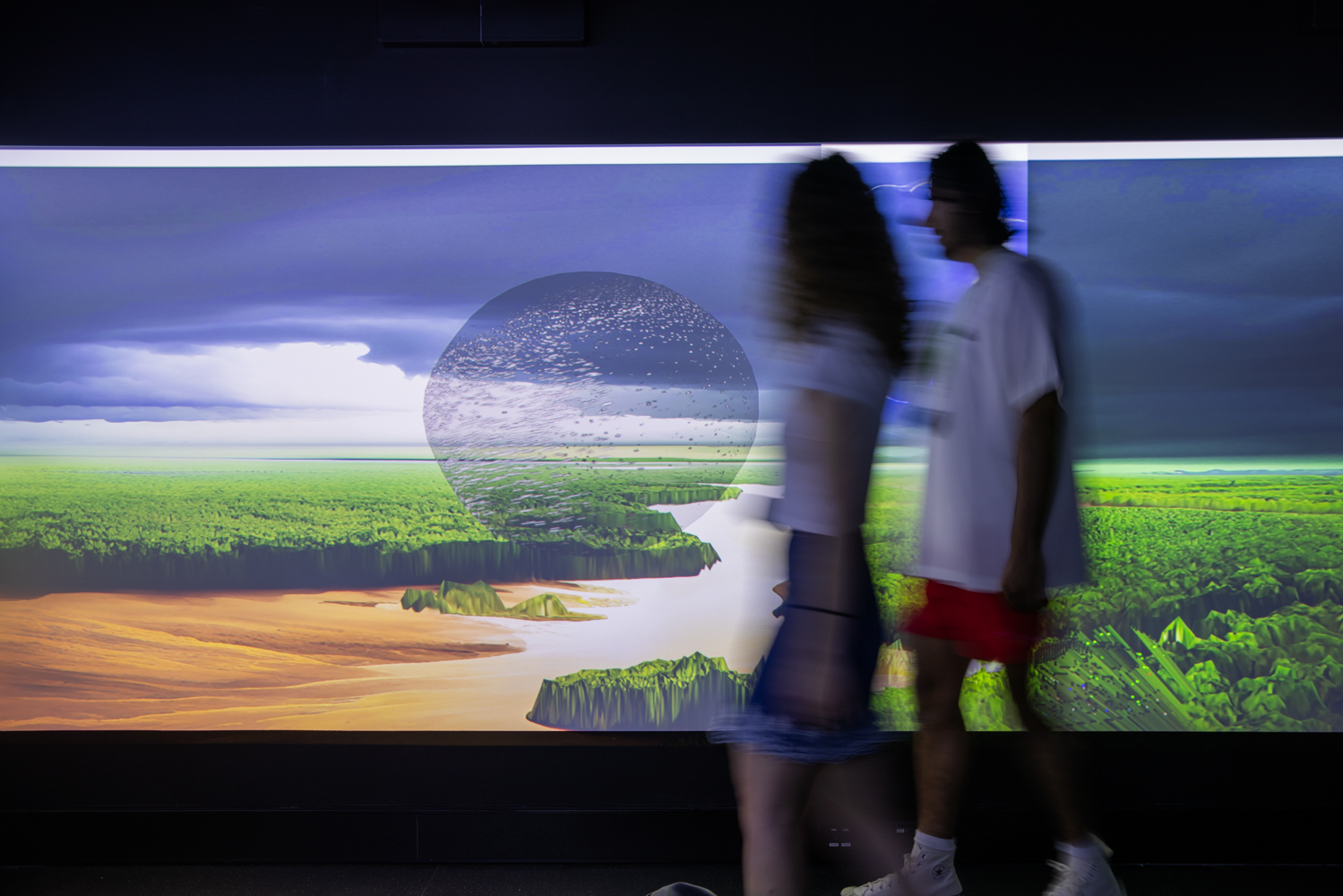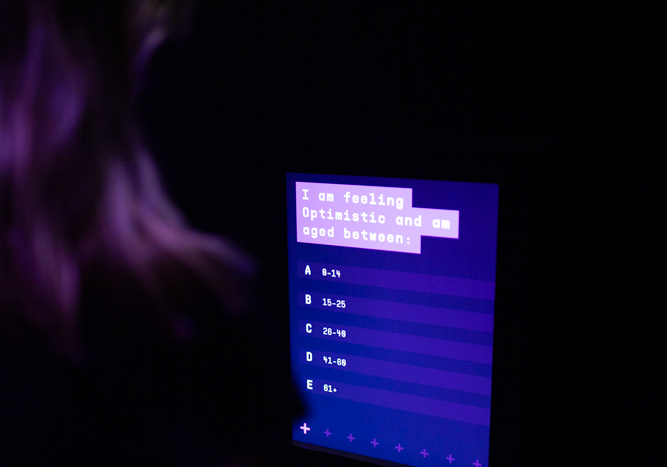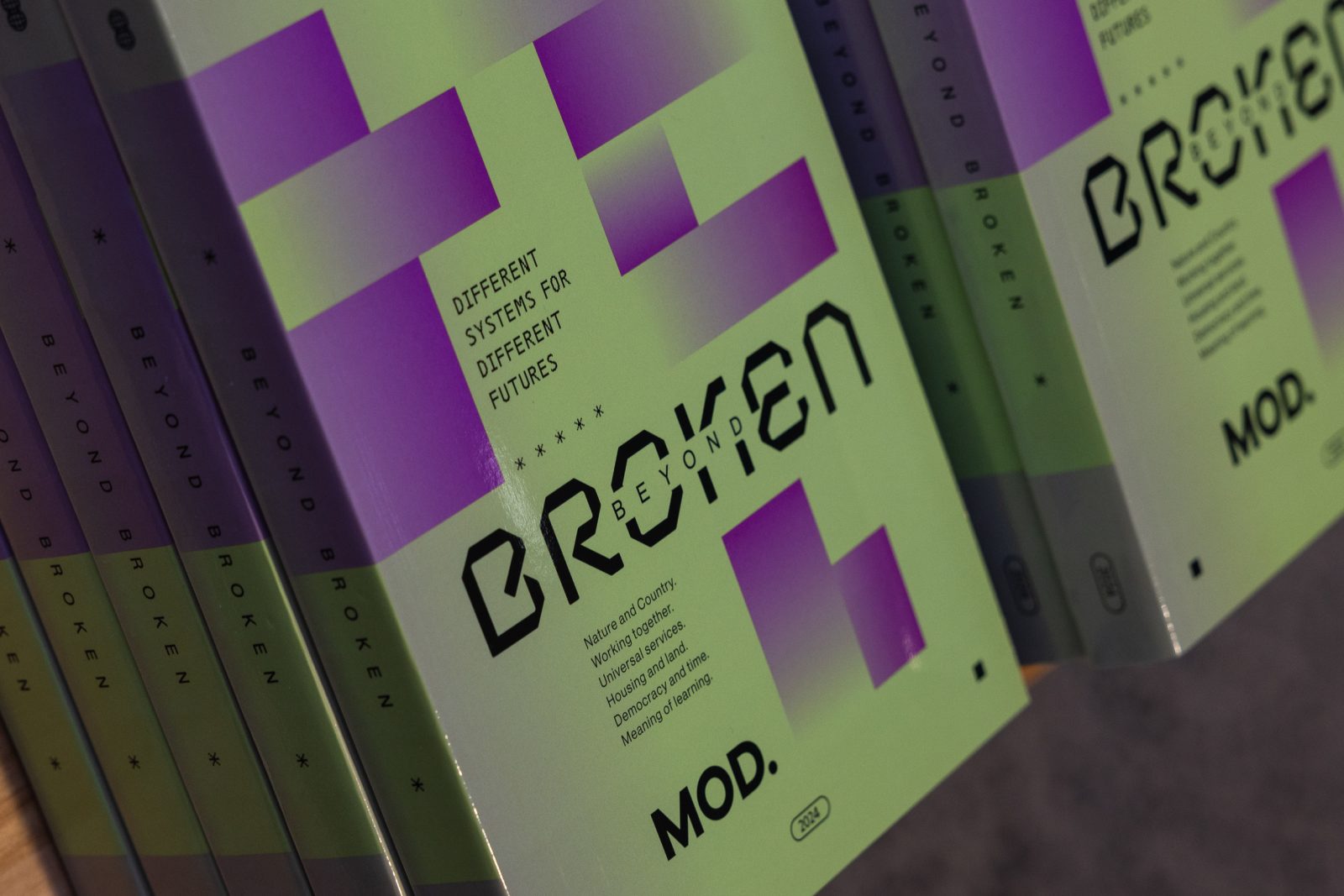Interested in helping people make hope a reality?
Make it a career with UniSA
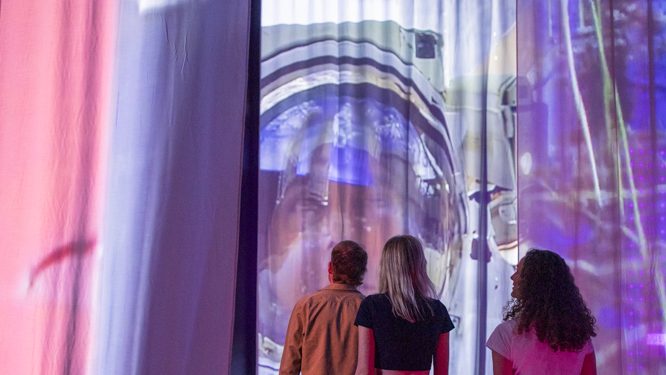
Exhibit Details
Open JanNov 2024
- What if the future is already being built?
- Delve Deeper
The future isn’t all bad. People are already creating change.
From housing and universal services, to democracy and collaboration, to nature and learning, system change is happening right now.
Young people getting involved in democracy, rivers getting rights, astronauts collaborating to build space stations, learning about Country.
Change happens when we imagine new ways of being, set goals to see this change through, and have agency to act on what’s important.
There are many pathways to the future. Which one will you choose?
GOALS
Housing
Housing is one of the most important issues, one of the issues that makes us the most emotional. Of course it is! Our homes are so important to us, they can be such private things, and we don’t like it when they feel like they are pawns in a bigger political game.
The continuing housing crisis causes most of us a lot of stress, but the ongoing march of subdivision and urban sprawl causes a lot of stress to our non-human neighbours and the environment more broadly. With the continuing demolition of housing and building of houses and roads, we’re losing green space which has flow-on effects on climate and biodiversity.
Subdivision in the suburbs is a really hot button topic because we tend to think of subdivision as losing one house to gain another.
The work I do says, well, let’s look at how these older suburbs change naturally anyway, through alterations and additions and making the single family home bigger .
I’m able to demonstrate that we can build the same amount of stuff that configure it differently to to get more houses in the suburbs.
– Damien Madigan, UniSA Creative
Universal Services
Universal Basic Income (UBI) seems like a bit of a pipe dream in Australia. It’s something that might be nice to have, but unlikely that any major political party would support it. However, back in 2020, it was a reality for a short time, and backed by a conservative Liberal Government too.
The Australia Institute, a public policy think tank, conducts research on a range of the important issues facing Australia. Their research on the changes to social welfare that were implemented during the early COVID-19 pandemic, both the Job Seeker supplement and the creation of Job Keeper, demonstrates how close we got to offering UBI and social welfare that sits above the poverty line.
Job Seeker is a good thing for the community and for the country in that it supports our most vulnerable, but it is also almost universally recognised as being entirely insufficient.
When COVID-19 hit, it was clear it was going to have a huge impact on the People needed help and they needed it fast. The government decided that it would effectively double the rate of Job Seeker overnight.
Hopefully, the pandemic and the response of coming together will now inspire a deeper thinking over the next period in Australia about how we support the vulnerable among us.
– Noah Schultz-Byard, The Australia Institute
PATHWAYS
Nature
In October 2016, Professor Anne Poelina presented a case to the first Tribunal for Nature in Brisbane. Together with friends of the Martuwarra, they brought the case ‘Martuwarra versus State of Western Australia, and Federal Governments’ to the tribunal. They asked the tribunal to recognise Martuwarra as a living sacred entity, an ancestral serpent being with a right to life, to live and flow, like her sister the Whanganui River in New Zealand.
The Martuwarra is one of Australia’s largest rivers, running through the Kimberley region of north-western Australia. It is one of the few remaining rivers that is still relatively unmodified by development, and now sits under the custodianship of the Martuwarra Fitzroy River Council. This Council of Aboriginal people work together to research, manage, and protect this very important River system for the benefit of all, including future generations.
I’m a woman who belongs to the Fitzroy River. In terms of duty of care and due diligence, I have a moral obligation to protect that river’s right to not only live, but to flow.
We see these systems as being alive and holding memory and as humans we’re passing through, and in a short moment in time, hopefully, our memory becomes embedded in this living water landscape, living cultural landscape and we continue to develop that ethics of care, but also take people to Country and show them the amazing river system.
– Anne Poelina, University of Notre Dame
Learning
Schooling in classrooms has been commonplace in Australia for more than 100 years and although this style of schoolingworks for many, it does not work for all. We wanted to learn about other styles of learning emerging in Australia. Learning on Country is a program which teaches children in twoways – classroom based learning, alongside working with local rangers to learn on Country.
Learning on Country is really important because we’re teaching them in the Country because it’s related to the songlines and the stories and also how to teach the Yolngu kids to become a good leader for their generation. – Gathapura Munungurr
We have to pass it on, tell stories that was given to us and told to us by our fathers and our grandfathers – Jennifer Yantarrnga
– Dangadanga (Danny) Garrawurra and Cindy Jinmarabynana, Learning on Country
AGENCY
Democracy
Around the world, there has been a wave of extending democratic rights to 16- and 17-year-olds. We’ve seen this right to vote granted in Scotland, Germany, Argentina, Cuba, and Austria, giving young people a sense of agency over their presents and futures. Closer to home, the Make it 16 campaign has been growing in momentum in Aotearoa New Zealand.
We’re a campaign that is trying to give young people, especially 16- and 17-year-olds, more power at the ballot box.
So that’s why we started Make it 16, to give a positive voice for young people, by young people, and ensure that they have a say on what the world looks like.
I think that that really shows how engaged young people are and how they are the future of decision making.
– Tabitha Stephenson-Jones, Make It 16
Collaboration
Collaboration, especially long-term collaboration where not everyone involved will see the final product, can be hard to coordinate. Although working in groups, both large and small leads to achievements that a person simply can not do on their own.
The space industry is one which requires immense collaboration between people across time, cultures, people, industries and place. With such a rich history of collaboration there is a lot that can be learned from the industry.
There is literally not a day in your life when you are not using space.
It is such an ingrained infrastructure, it’s so seamlessly integrated, that you don’t even notice
I think we perceive space as a special environment. In a sense, if you don’t work together, you’re not going to work at all. Project, like the International Space Station can’t work unless everybody works together in goodwill.
– Kerrie Doherty, Australian Space Agency
Accessibility
Credits
- Junior Major Design
- Nic Mollison Build
- Studio 1 Exhibitions Build
- Tabitha Stephenson-Jones Interview
- Noah Schultz-Byard Interview
- Anna Poelina Interview

